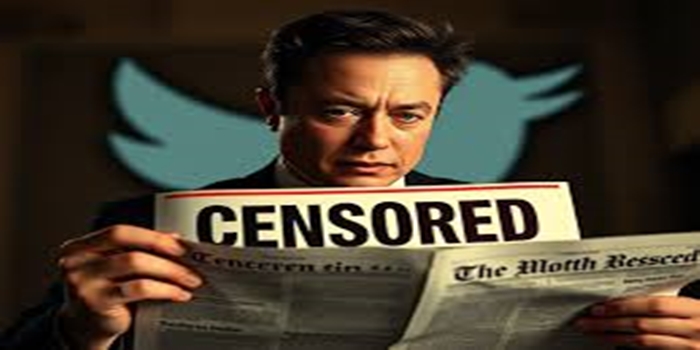In this article, we discussed the meaning of censorship, the types, the example, we also talked about the advantages and disadvantages
Definition
Censorship is the overthrow of words, images, or ideas that are “offensive,” happens whenever some people succeed in imposing their personal political or moral values on others. Censorship can be carried out by the government as well as private pressure groups.
There are many types of censorship, including:
Withholding: When someone chooses not to share information
Destroying: When someone intentionally eliminates information
Altering: When someone changes known information
Selecting: When someone only shares some information
Self-censorship: When someone decides not to share information they know, or to avoid sharing controversial information
Political censorship: When a government controls the media to serve its own interests
Religious censorship: When a religious group suppresses ideas, thoughts, and media that go against their beliefs
Corporate censorship: When editors at corporate media outlets stop publishing information that could negatively portray their business
Library censorship: When a librarian avoids selecting materials that might be controversial or that they personally disagree with
Censorship can be enforced by law or by social control.
Examples of censorship
Book banning
Groups that consider books to be immoral can convince others to ban them, which can remove them from libraries.
Social media restrictions
Social media sites may remove posts or suspend accounts that violate their standards, such as hate speech or nudity.
Corporate network blocking
Some companies block certain websites at work to prevent distractions.
Shutting down websites
Websites that promote criminal activity, such as selling drugs or counterfeit goods, may be shut down.
Film censorship
Government agencies may review and license films to ensure they meet certain criteria, such as avoiding obscenity or violence.
Music censorship
Government agencies may regulate explicit content in music, such as requiring artists to change lyrics.
Teaching censorship
Some people have objected to teaching historically accurate racial history in schools.
Advantages of Censorship
- Censorship can reduce the impact of hate speech in society.
The idea that all speech is equal is arguably false. There are words that people use as
an effort to shut down the right to speak of others. It took over a century for minorities
and women to gain a semblance of equal rights because of the presence of hate
speech. Even if it is clothed in the ideas of religious freedom, state’s rights, or
patriotism, that doesn’t change what it is to others.
2.Parents have plenty of work to do in today’s society to protect their children from
unhealthy influences. There is content everywhere, including items that slip through
parental filters and kid-friendly apps, that could lead to harmful encounters in the
future. Children have fewer qualms about talking with strangers online than adults do
primarily because of the way kids see the world. They have more innocence, curiosity,
and might even be shy and lonely. Censorship allows us to point out potential threats
so that a child’s inexperience and lack of foresight doesn’t get them into trouble.
3.Censorship can reduce the amount of conflict in society.
If you look on the Internet long enough, there will be something that can offend
anyone. The goal of censorship isn’t to eliminate access to anything that anyone might
find to be problematic. We wouldn’t get to go online if that were the case. What we
can do with this process is to limit access to information that could have an adverse
4.impact on the overall culture of our homes, communities, or countries.
Netflix and Saudi Arabia work together to create targeted areas of censorship based
on this principle. Whether you agree or disagree with the practice, this work removes
access to content that might be disruptive to society.
Disadvantages of Censorship
1.It represses one group of people in favor for what the majority wants.
A museum director was once arrested because sexually explicit photographs from
Robert Mapplethorpe was included in an art exhibited that was being managed.
Although the artist’s work displays images, often black and white, that feature nudity
and a certain amount of suggestiveness, it was far from violent or suggestive content
that would encourage lawlessness.
2.It allows people to create a specific narrative in society to call it truth.
You will often hear calls for censorship on violence when they see it in video games,
read it in books, or see examples of it in film or on TV. The reality of fictional
violence is that it does not cause otherwise stable people to suddenly want to hurt
someone. If we start suppressing material based on the actions of unstable people,
then nothing would be safe from the censorship process.
- It stops people from pursuing career opportunities.
If we live in a world where everything receives censorship, then it would be a place
where nothing could get done without specific permission from someone in charge.
That means every business, each idea, and even the foods that you would eat each
night would come with an official stamp of approval. It creates an Orwellian
landscape where direct supervision by an authoritative figure or state becomes
Conclusion
censorship, the changing or the suppression or prohibition of speech or writing that is deemed subversive of the common good. It occurs in all manifestations of authority to some degree, but in modern times it has been of special importance in its relation to government and the rule of law.


